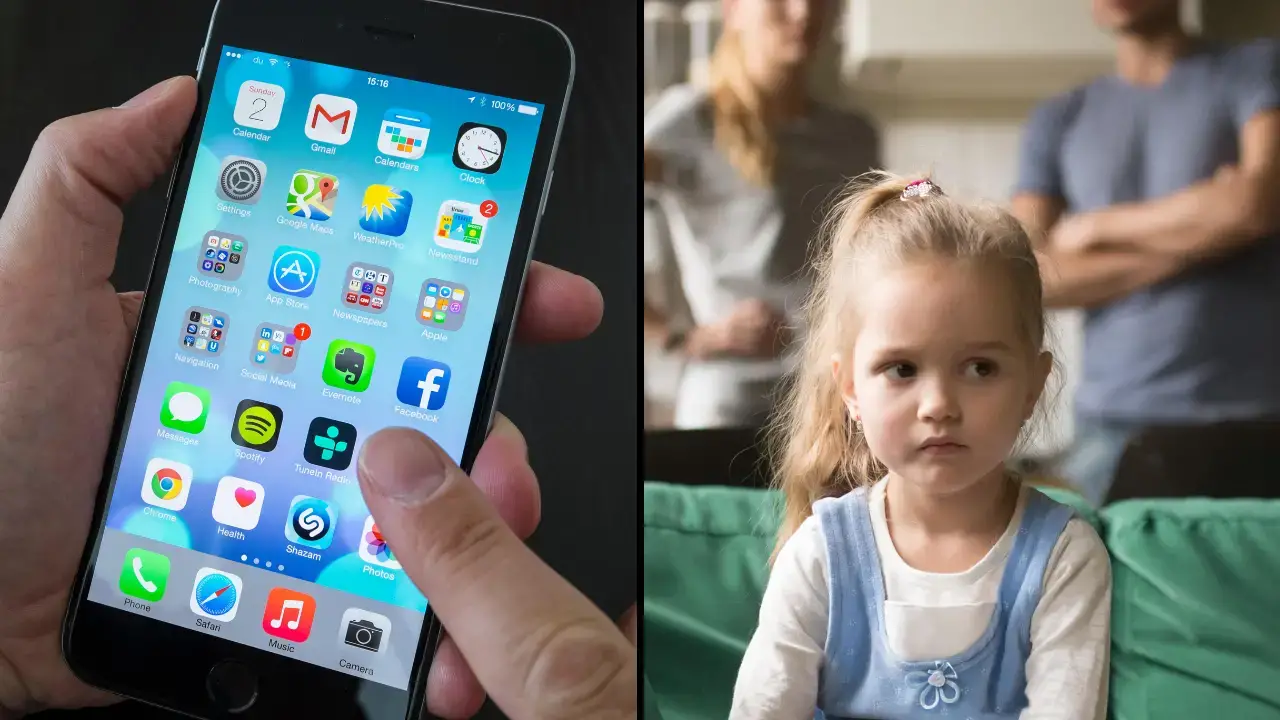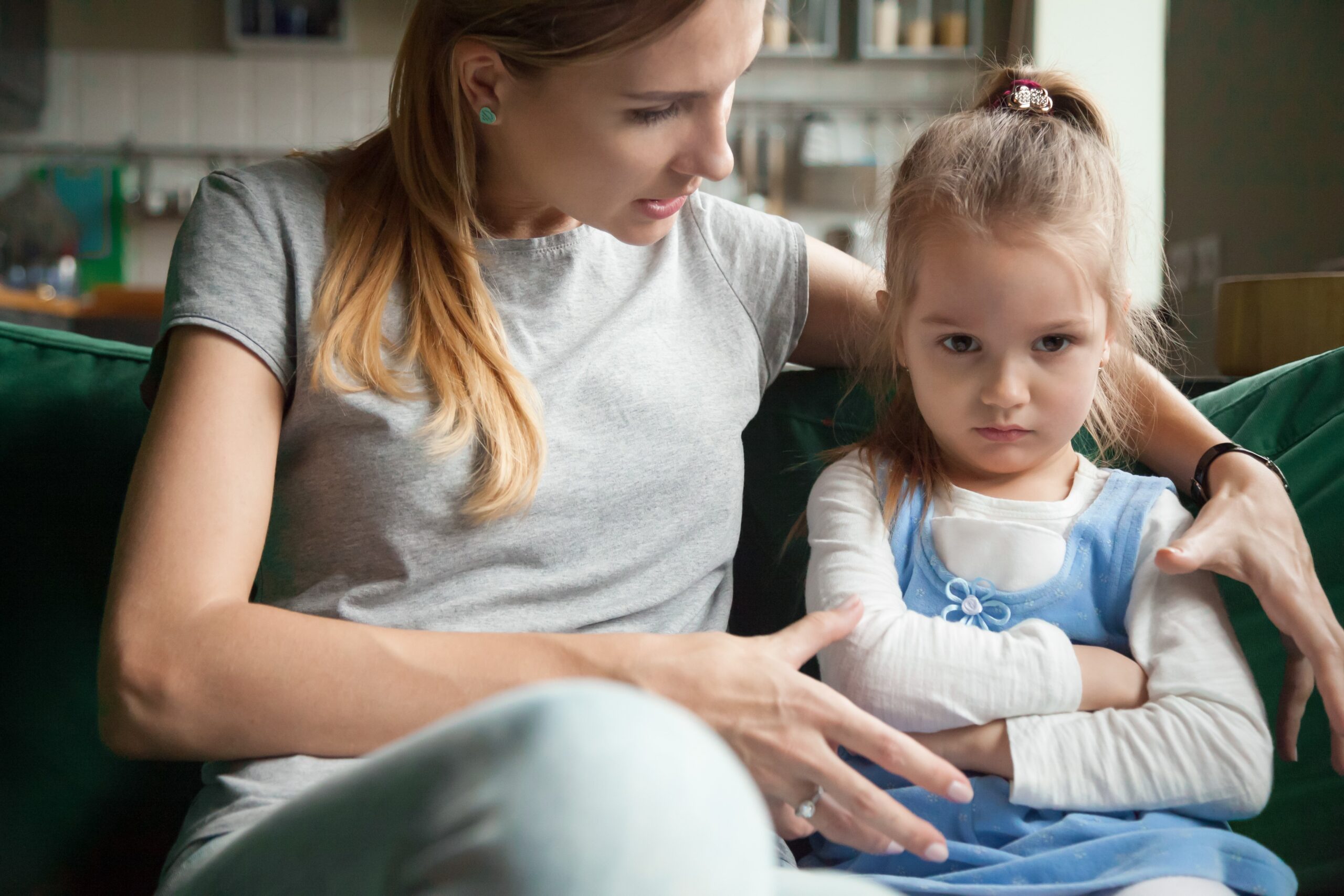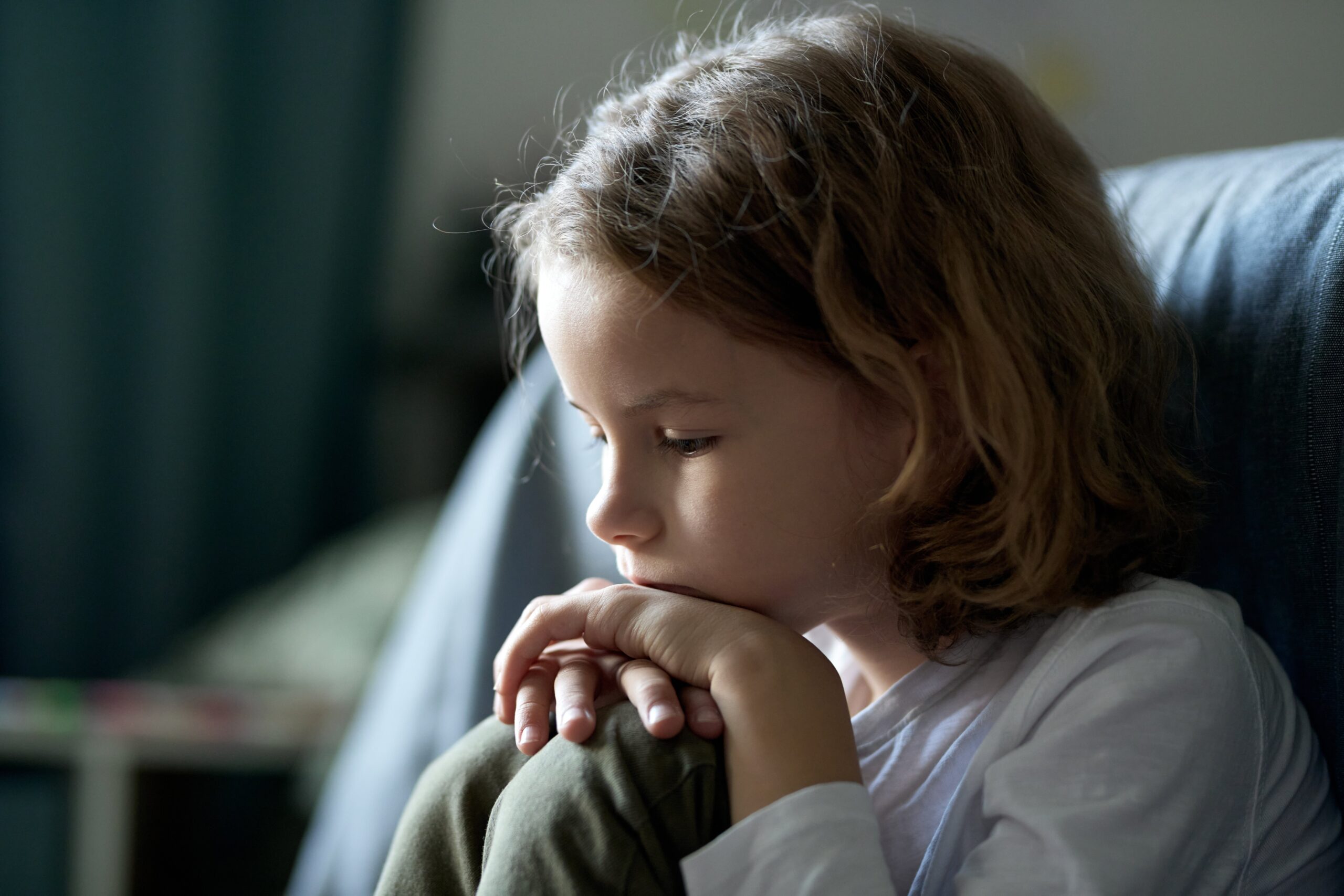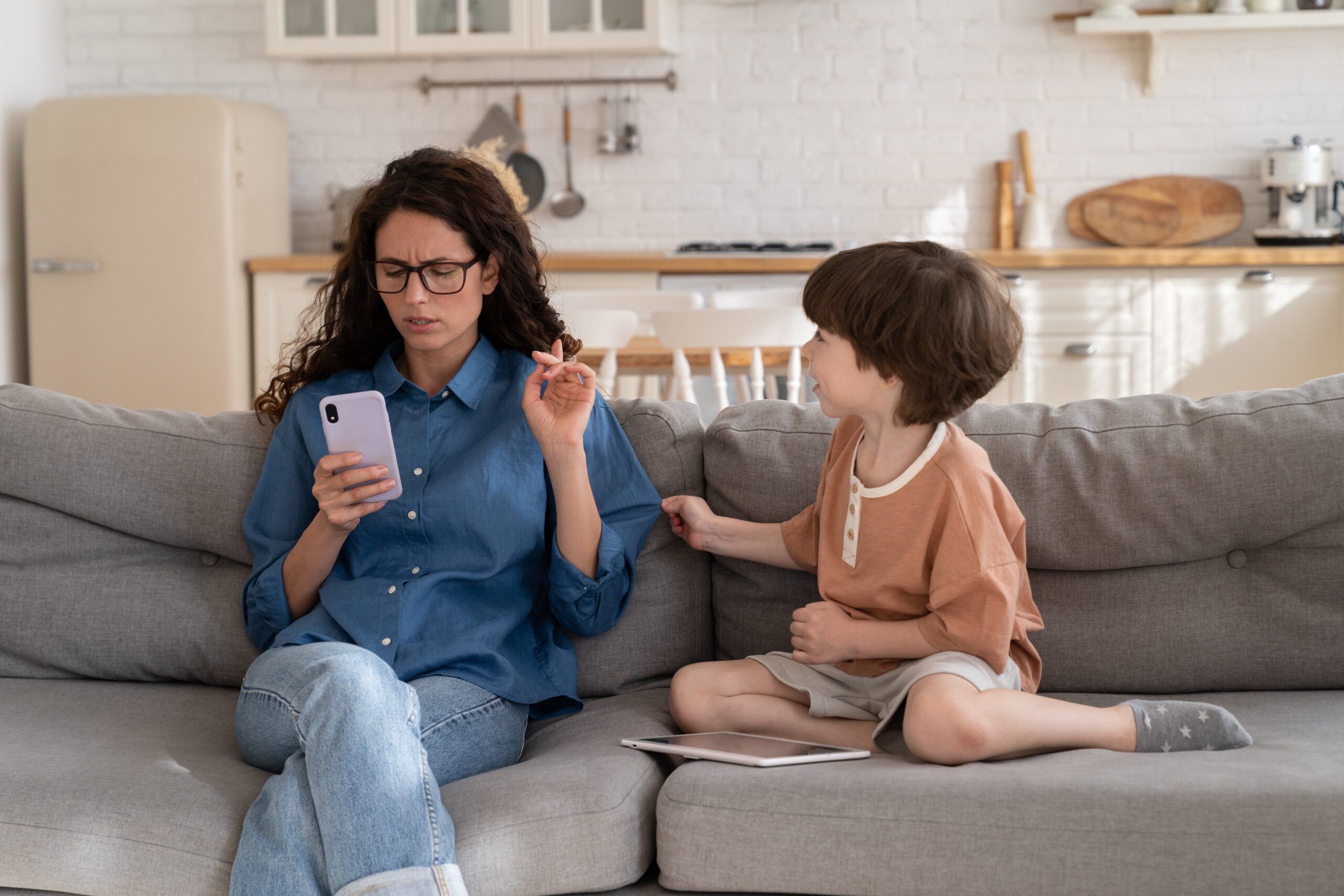
Credit: Alamy
Parents Warned About ‘Phubbing’ In Front Of Their Kids
An expert is warning parents against ‘phubbing’ in front of their children, as it could be harmful in the long term.
Although you’re probably not aware you’re doing it, you’re likely guilty of ‘phubbing’ in front of your kids.
While it may seem like an innocent act and an everyday occurrence, parents are being told to be mindful of it, as it could affect kids.

Psychologist Mary Alvord, co-author of ‘Conquer Negative Thinking for Teens,’ tells Very Well Mind that when parents participate in ‘phubbing,’ their child may feel ‘inadequate, lonely, rejected, and dismissed.’
She explains: “He or she may think they are insignificant. When children begin to think this way, they often isolate [themselves]. They will also overcompensate negatively or positively to get any type of attention.”
According to research, children who feel they’re being ignored are more likely to experience feelings of depression or anxiety.
One such study, published in the National Library of Medicine, found: “Higher levels of emotional neglect were associated with increased depressive symptoms at 18. Conversely, strong peer social support was associated with reduced depressive symptoms.”

So, what exactly is ‘phubbing’?
As explained by TechTarget, it’s a contraction of the words ‘phone’ and ‘snubbing,’ and involves a person ignoring their companion in favor of using a smartphone.
The term was reportedly created in 2012 and was part of a campaign titled ‘Stop Phubbing.’
Alvord says while everyone may be guilty of ‘phubbing’ from time to time, parents should ask themselves: Are they giving their kids undivided attention when they need it?
The expert continues: “Parents rely on the convenience of smartphones (i.e., alarms, book reading, scheduling, news, social connections, etc.), thus creating a sense of dependence.
“In fact, we often hear parents’ comments that they ‘can’t go anywhere’ without their phone.”

But ‘phubbing’ doesn’t just impact the relationship between a parent and a child.
The phenomenon is also considered a significant risk factor when it comes to romantic relationships.
A survey conducted in Turkey by Faruk Caner Yam from Gaziosmanpaşa University found that people on the receiving end of ‘phubbing’ behavior are likely to be less satisfied in their relationships.

Yam concludes: “Partners’ being too busy with their smartphones during their romantic relationships harms relationship satisfaction and perceived romantic relationship quality.
“For this reason, it is very important to raise awareness of couples about the use of smartphones during their romantic relationships.”